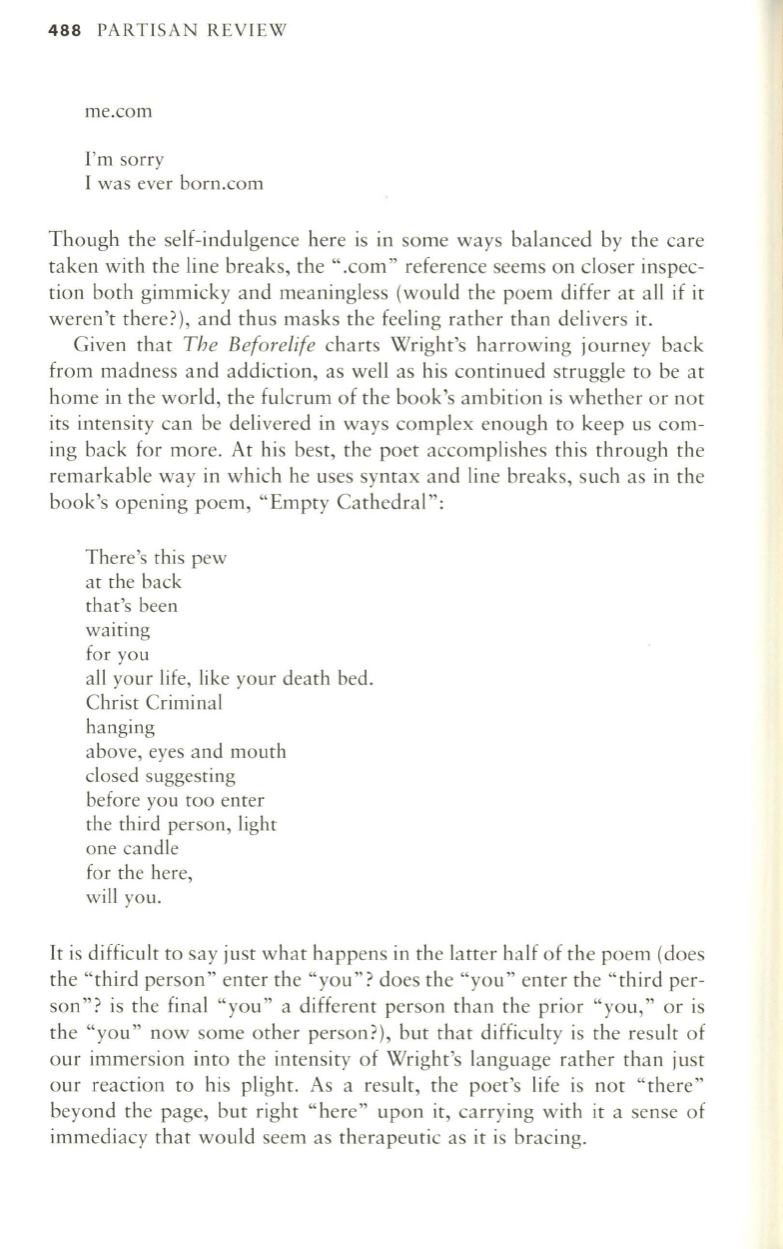
488
PARTISAN REVIEW
me.com
I'm sorry
I was ever born.com
Though the self-indulgence here is in some ways balanced by the care
taken with the line breaks, the" .com" reference seems on closer inspec–
tion both gimmicky and meaningless (would the poem differ at all if it
weren't there?), and thus masks the feeling rather than delivers it.
Given that
The Beforelife
charts Wright's harrowing journey back
from madness and addiction, as well as his continued struggle to be at
home in the world, the fulcrum of the book's ambition is whether or not
its intensity can be delivered in ways complex enough to keep us com–
ing back for more. At his best, the poet accomplishes this through the
remarkable way in which he uses syntax and line breaks, such as in the
book's opening poem, "Empty Cathedral":
There's this pew
at the back
that's been
waiting
for you
all your life, like your death bed.
Christ Criminal
hanging
above, eyes and mouth
closed suggesting
before you too enter
the third person, light
one candle
for the here,
will you.
It
is difficult to say just what happens in the latter balf of the poem (does
the "third person" enter the "you"? does the "you" enter the "third per–
son"? is the final "you" a different person than the prior "you," or is
the "you" now some other person?), but that difficulty is the result of
our immersion into the intensity of Wright's language rather than just
our reaction to his plight. As a result, the poet's life is not "there"
beyond the page, but right "here" upon it, carrying with it a sense of
immediacy that would seem as therapeutic as it is bracing.


